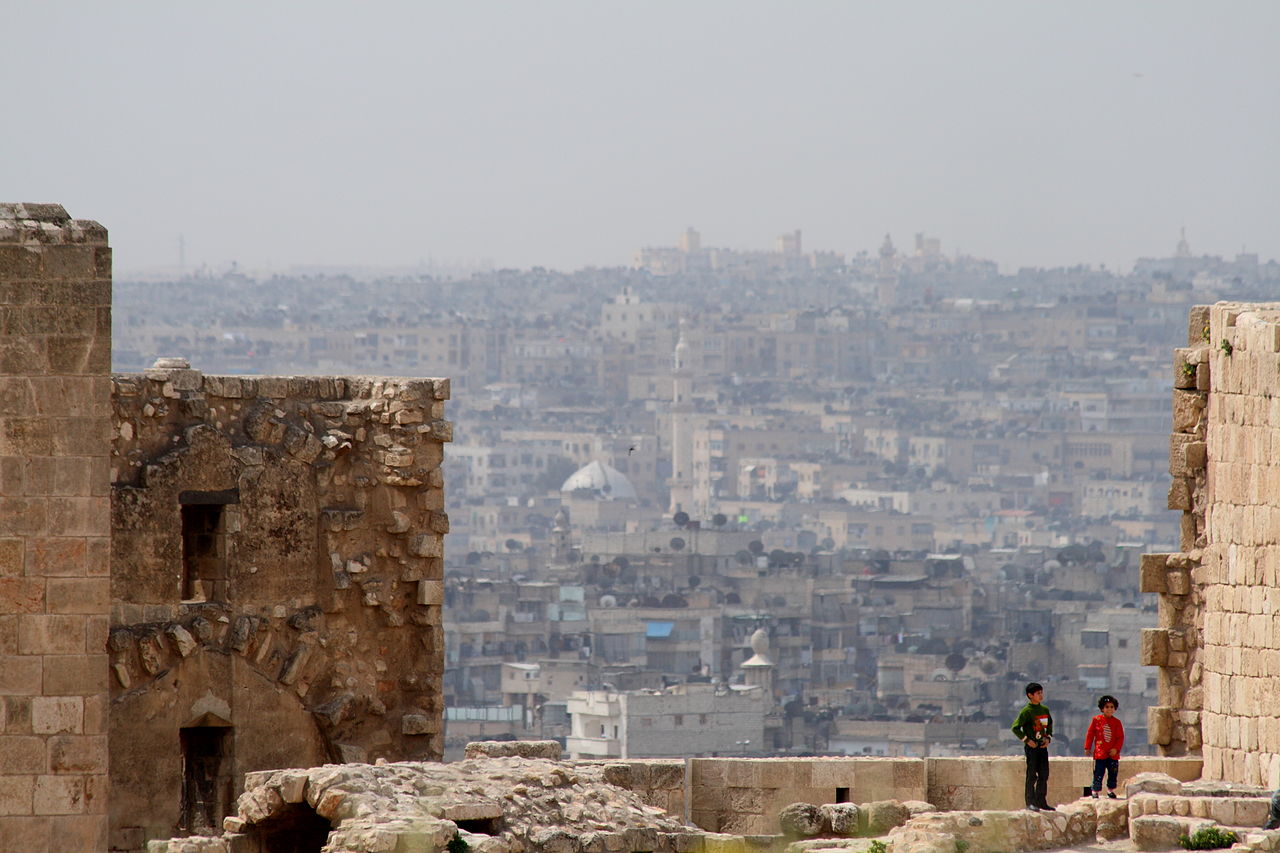Editor’s note: This column contains a graphic depiction of suicide.
Views expressed in opinion columns are the author’s own.
Amid the carnage of war stood an old man ending his life. On the third-floor balcony, beside the plants he cherished, he confronted death before a growing crowd of bewildered spectators.
When he tucked the clotheslines into the loose skin of his neck, he may just have been thinking about the war. Or maybe, as his legs began to leave the ground and the wire started to sink deeper into his skin, he was thinking about the way his son had ducked beneath the dashboard. How even with the driver shot and death so near, his son sought escape.
This is the true story of my grandfather’s suicide in the heart of Damascus in the early years of the Syrian civil war. In the eyes of my family, he had brought them great shame, but I thought of it as a heart-wrenching public display of a civilian’s response to war. Yet I understood how my grandfather’s death could be viewed so shamefully. To many in my family, it was an insensitive act, rather than an act brought about because of a great deal of sensitivity.
In the aftermath, no one seriously questioned the motives for his suicide. He had left no letter, nor had he hinted his intention. However, I suppose a suicide performed so publicly makes one thing clear: He wanted to be seen. He had hanged himself from a clothesline in the most visible area of the balcony, in the midst of the morning rush hour. It was a statement of pain and an expression of a strange desire for others to witness it.
It hardly seemed like the “proper” response to war or to his son’s death. Instead, it seemed like an insensitive addition to the tragedy our family was still recovering from. However, I don’t believe we would call the behavior of the rest of my family in Syria proper, either.
First, we must ask, is there such a thing as a “proper” response to war? Amid the chaos and bloodshed, is there a particular way a civilian is expected to behave? I believe the answer to that question lies in the story of my family in Syria, which resembles the stories of millions of families residing in the country to this day.
Certain parts of Damascus, particularly the places closest to the residence of the president, are considered relatively safe from the war. It is in this area where much of my family resides. Many of them still go out to restaurants and parties and they often commit the grave mistake of posting pictures of their evenings on Facebook. These pictures invite overwhelming criticism from members of my family in America.
How inappropriate, my American family says. All this war and suffering around them, and they are dressing up and going to restaurants like nothing is happening. Yet those members of my family who, by a combination of luck and chance, moved to America decades before the war don’t find anything inappropriate about their own daily outings. I suppose they must believe that distance awards them this privilege, and that it is only logical to expect Syrians close to the war to behave differently.
Surely, going out each night and sitting in restaurants while people are dying of starvation and bombings just miles away is neither proper nor sensitive. But it is a very human response. All of us want to go on with life and maintain some sense of normalcy, especially amidst a war that seems to resist an end. What is natural and human hardly ever fits within the strict confines of “proper” behavior.
These two responses demonstrate opposing methods of coping with the war. However, both involve seeking respite from a conflict that was never comfortably far enough away. These are precious decisions that only those experiencing the torment of an unending war could understand.
For those families in Syria, the war is always present, from the black clouds rising in the distance to the sounds of gunshots and barrel bombs. It is there during the hours with electricity and the hours without running water. Yes, some are safe, but they are suffering nonetheless. While they are alive, they remain very close to death, lingering somewhere in the awkward space between. One who is far from the war can hardly judge the behavior of those closest to it.
Aiyah Sibay is a senior English major. She can be reached at AK_Sibay@hotmail.com.



